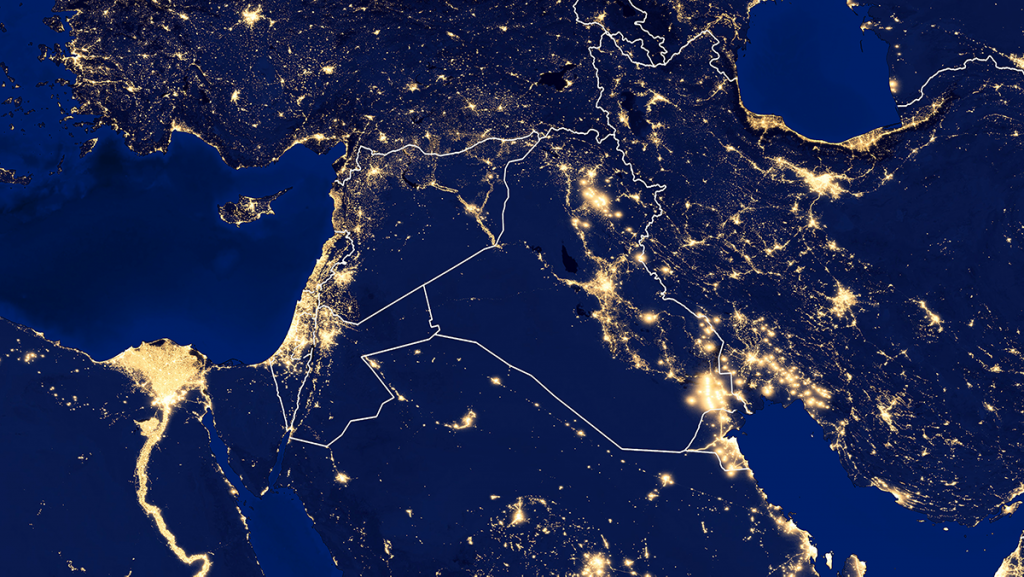
What does the future hold for Middle Eastern states?
From independence until the advent of the Arab Spring, Middle Eastern states have suffered due to their constituting principle, a…
Read more

From independence until the advent of the Arab Spring, Middle Eastern states have suffered due to their constituting principle, a…
Read more
In this last #IpevLive conversation that took place on June 29, 2021, Inès Abdel Razek from the Palestine Institute for Public Diplomacy, Alain Dieckhoff from…
Read more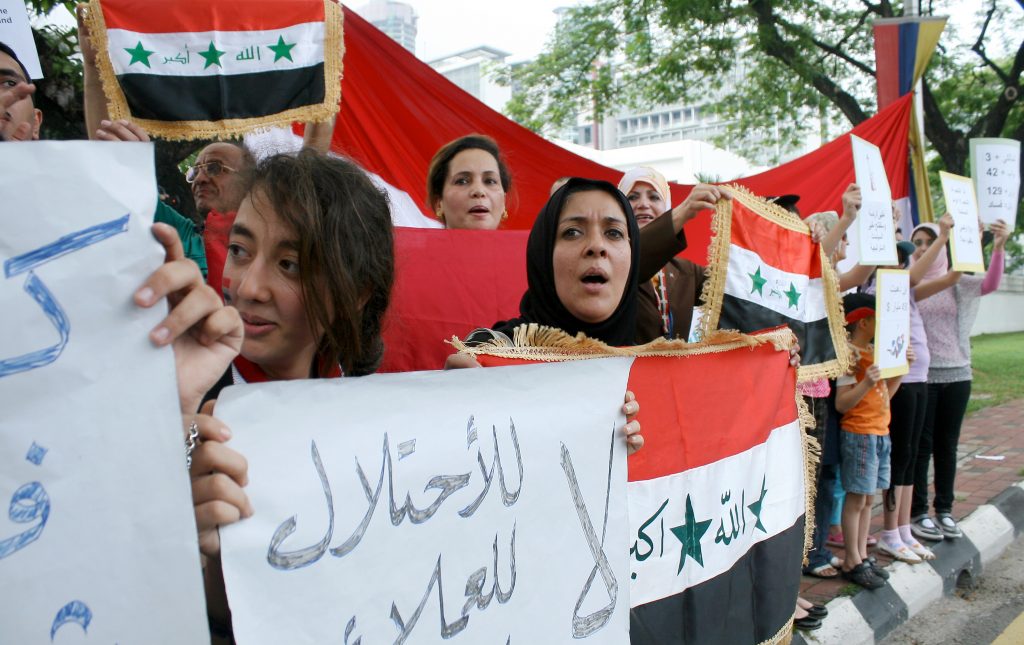
In the sixth #IpevLive conversation “Civil Society, Youth and Academia: A Necessary Axis for a Successful Transition in Reducing Violence…
Read more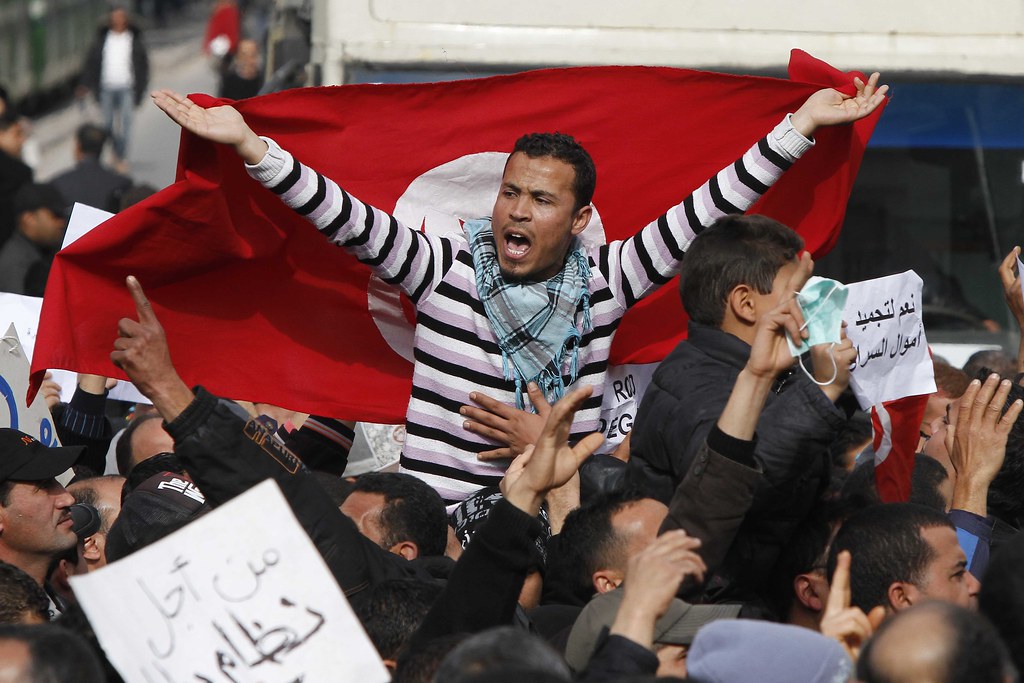
In the fifth #IpevLive conversation “Seizing the Opportunities Created by the Pandemic”, that took place on June 15, 2021, Kamel Doraï from the…
Read more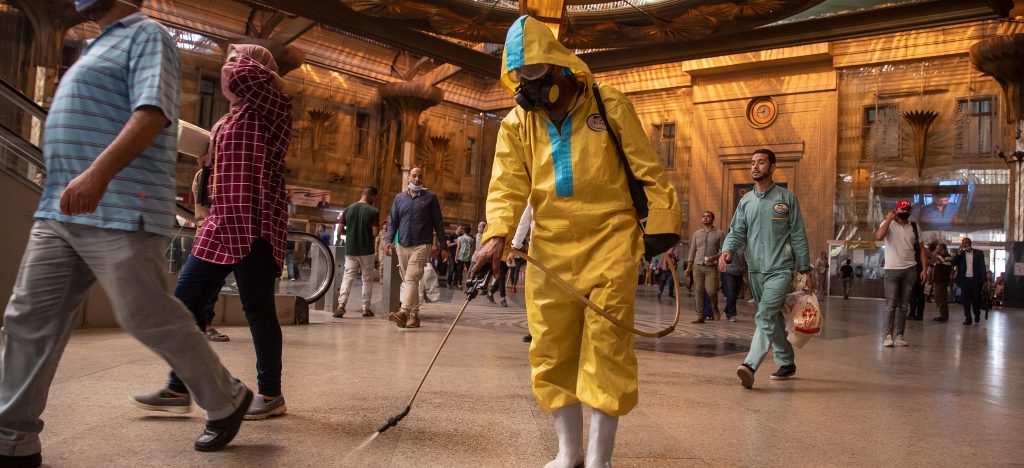
In the fourth #IpevLive conversation “The Pandemic As a Magnifying Glass”, that took place on June 8, 2021, Rim Turkmani…
Read more
In the third #IpevLive conversation that took place on June 1, 2021, Osama Gharizi from the US Institute of Peace and Mohamad Moustafa Alabsi From…
Read more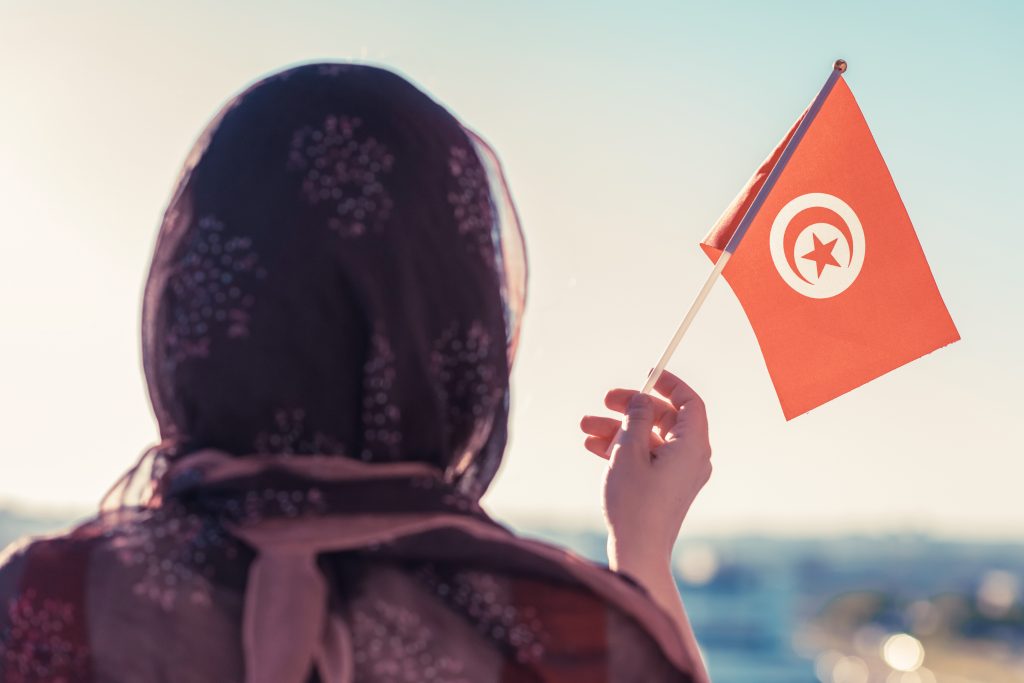
The second #IpevLive conversation that took place on May 25, Nadje Al-Ali (Brown University), gender consultant and researcher Ahlem Bousserwel, and…
Read more
Welcome to our podcast collection featuring conversations with MENA experts and academics on transition from violence in the MENA region.…
Read more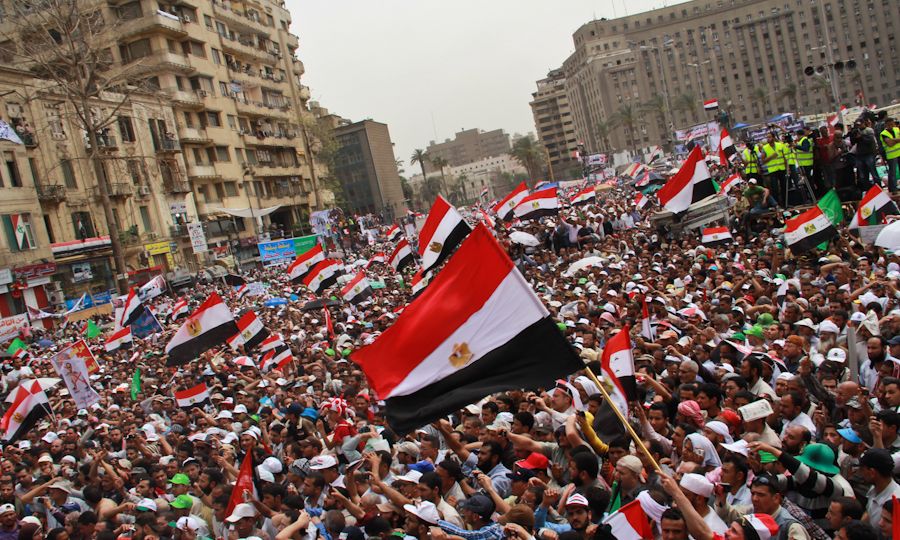
The first IpevLive conversation that took place on May 18 gathered Sari Hanafi (American University of Beirut), Andrew Lebovich (European…
Read more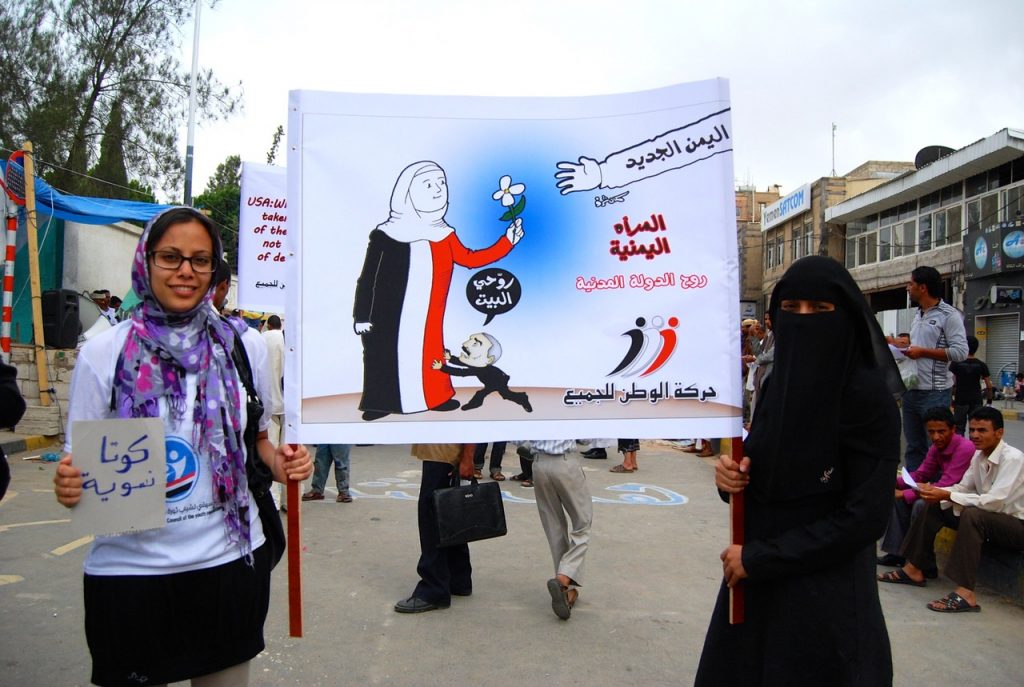
The working paper presents a gendered approach to understanding violence and ways of exiting violence. It emphasises the importance of…
Read more
In recent years, radicaliation resulting in violent extremism has increased considerably. In both East and West, it has become a…
Read more
Through the prism of gender, this chapter offers an analysis of violence and the means to exit violence. Starting from…
Read more
The end of extremely violent conflicts such as the Rwandan genocide or the Apartheid in South Africa has led us…
Read more
By proposing an “ethics of memory” which is composed of 6 recommendations, the analysis “Uses and misuses of memory” questions…
Read more
The study “Reconciliation and Justice” analyzes justice policies implemented in post-violence contexts ((armed conflicts or authoritarian and repressive regimes) commonly…
Read more
The study “public policies against violence” offers a reflection on the public policies set up to fight against violence. By…
Read more
“Separatism and the end of violence” highlights the issues at stake in the relationship between independence and political violence, and…
Read more
The research work carried out by Mohamed-Ali Adraoui, Samir Amghar, Fabio Merone, Marc Sageman and Dominique Thomas proposes to study…
Read more
This research work conducted by Shashi Jayakumar, Bartolomeo Conti, Rahma Dualeh, Phil Gurski, Anne-Sophie Hemmingsen, Fredrick Ogenga, Ekaterina Sokirianskaia is…
Read more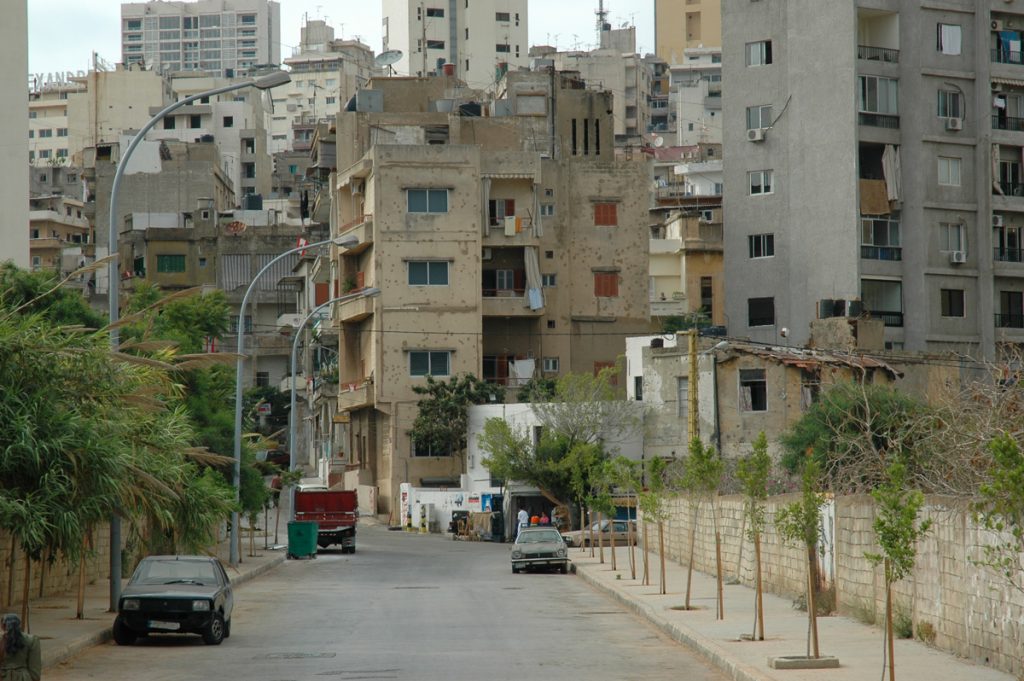
Marie Kortam is a member of the working group “Radicalisation, a comparative perspective“. She is an Associate Researcher at the…
Read more
Alfonso Pérez-Agote, professor of sociology at the University Complutense of Madrid and coordinator of the Groupe Européen de Recherche Interdisciplinaire…
Read more
Scott Straus is Professor of Political Science and International Studies at UW-Madison, where he also serves as Associate Chair/Director of…
Read more
Richard Rechtman is leader of the working group “Reconstructing the self: comparative lessons“. In this video, he explains why he…
Read more
The International Panel on Exiting Violence has organized with Carnegie Corporation of New York and Carnegie Endowment for International Peace…
Read more
The International Panel on Exiting Violence (IPEV) has organized with Carnegie Corporation of New York and Carnegie Endowment for International…
Read more
The International Panel on Exiting Violence has organized with Carnegie Corporation of New York and Carnegie Endowment for International Peace…
Read more
What is radicalisation? Is it organised around charismatic figures? What is the specificity of radicalisation in the Spanish Basque country?…
Read more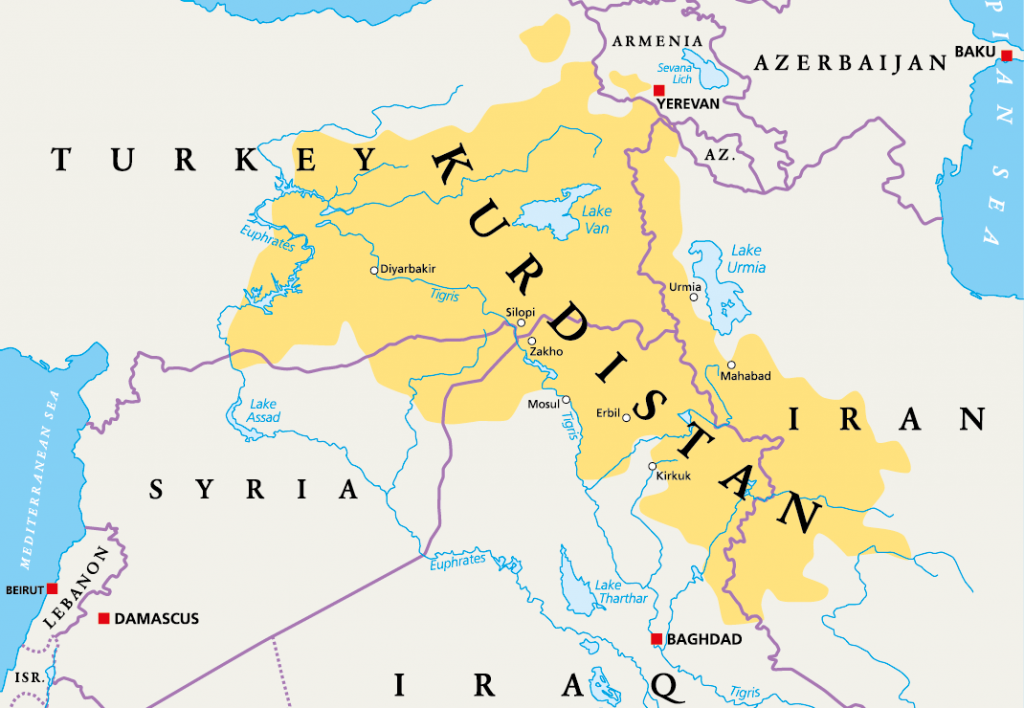
Adel Bakawan, leader of the IPEV Working Group Independentism, separatism, irredentism and State building, answers three questions about the issues of…
Read more
Pénélope Larzillière, leader of the working group Women and violence with a gendered approach: MENA region and diaspora is a…
Read more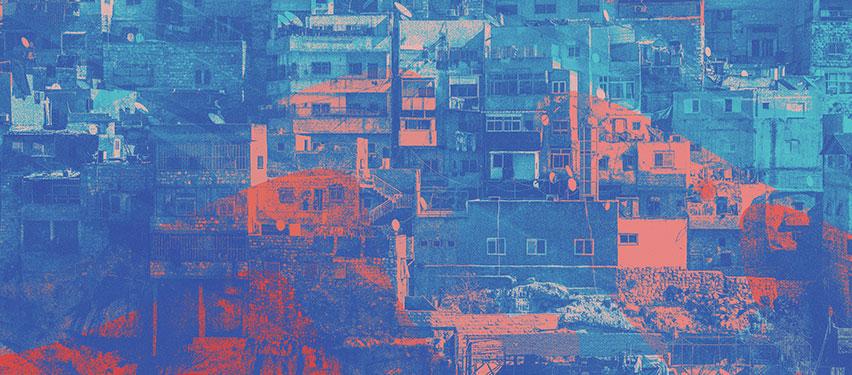
On 3rd and 4th of July 2017, the International Panel on Exiting Violence (IPEV), along with a dozen of North-African…
Read more
On 3rd and 4th of July 2017, the International Panel on Exiting Violence (IPEV), along with a dozen of North-African…
Read more
On 3rd and 4th of July 2017, the International Panel on Exiting Violence (IPEV), along with a dozen of North-African…
Read more
On 3rd and 4th of July 2017, the International Panel on Exiting Violence (IPEV), along with a dozen of North-African…
Read more
On 3rd and 4th of July 2017, the International Panel on Exiting Violence (IPEV) gathered in Tunis for a symposium…
Read more
On 3rd and 4th of July 2017, the International Panel on Exiting Violence (IPEV) gathered in Tunis for a symposium…
Read more
Saad Salloum is an Iraqi academic specializing in Iraqi minorities and human rights. He is assistant Professor and heads the research department…
Read more
By Lotte Buch-Segal, Hélène Dumas, Clara Han, Emilie Medeiros, Richard Rechtman and Valérie Robin-Azevedo Political support for the reconstruction of…
Read more
Mohamed-Ali Adraoui is the leader of the working group Between Salafism, sectarianism and violence: the new faces of radicalisation. He…
Read more
By Najwa Adra, Nadje Al-Ali, Sana Farhat, Danièle Joly, Pénélope Larzillière, and Nicola Pratt 1/ Gendered approach to violence. General:…
Read more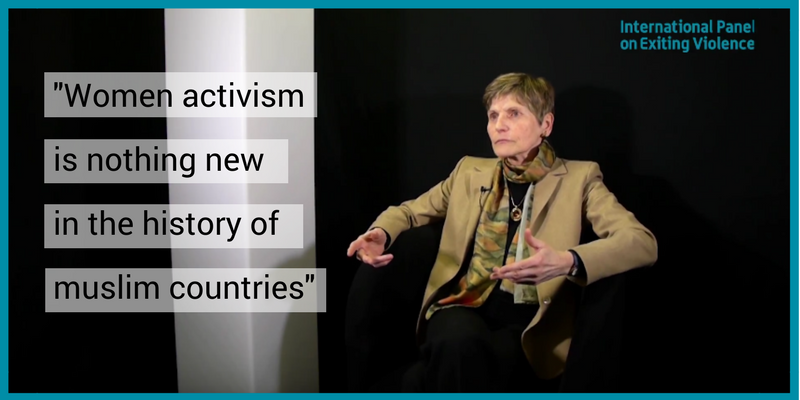
Danièle Joly is Professor Emeritus in the Department of Sociology at the University of Warwick. She is the leader of…
Read more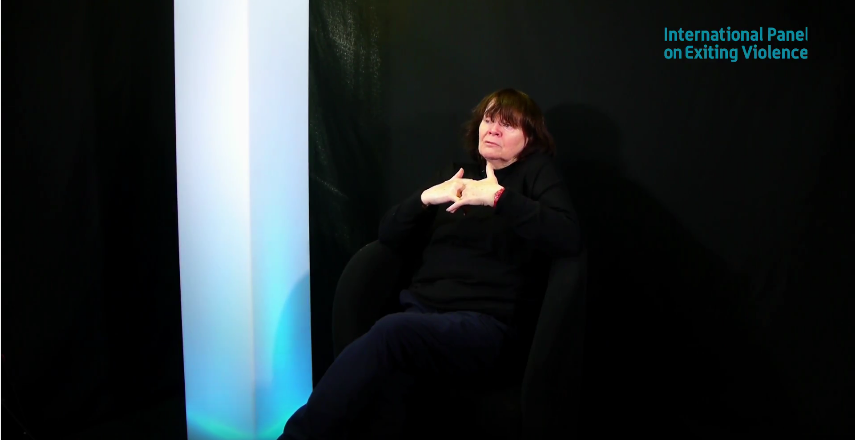
Elisabeth Claverie, leader of the working group “Reconciliation and Justice“, examines the notions of justice and reconciliation in a context…
Read more
On January 18-19, 2017, the IPEV kick-off gathered 100 IPEV members, researchers and practicioners in Paris for the first time.…
Read more
On January 18-19, 2017, the IPEV kick-off gathered 100 IPEV members, researchers and practicioners in Paris for the first time.…
Read more
During the IPEV Kick-Off, Hillary Wiesner from Carnegie Corporation of New York, IPEV’s principal grant provider, presented the value of…
Read more
On January 18-19, 2017, the IPEV kick-off gathered 100 IPEV members, researchers and practicioners in Paris for the first time.…
Read more
IPEV co-director, Michel Wieviorka presents the IPEV project during the kick-off and stresses one of its strengh: the project deals…
Read more
In January 2017, during the project Kick-Off, Eric Briat from the Commissariat général à l’égalité des territoires, held a speech…
Read more
During the kick-off of the International Panel on Exiting Violence, Michel Wieviorka, IPEV co-director and President of the Fondation Maison…
Read more
Tarek Mitri, Director of the Policy Institute at the American University of Beirut, former Lebanese Minister and former Special Representative…
Read more
On January 18-19, 2017, the IPEV kick-off gathered 100 IPEV members, researchers and practicioners in Paris for the first time.…
Read more
Farhad Khosrokhavar, senior researcher at the EHESS, is the leader of the working group For a Comparative, Anthropological, and Contextualised…
Read more
On January 18-19, 2017, the IPEV kick-off gathered 100 IPEV members, researchers and practicioners in Paris for the first time.…
Read more